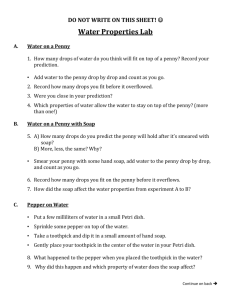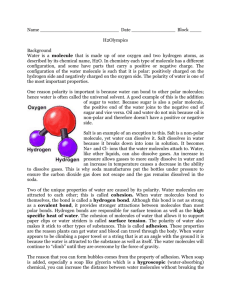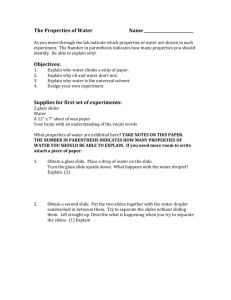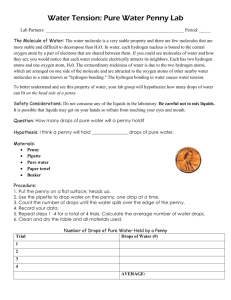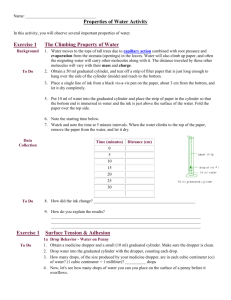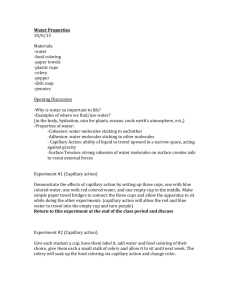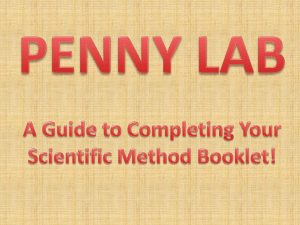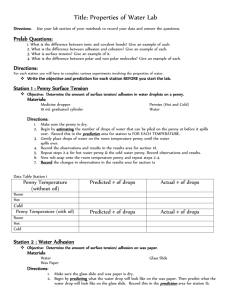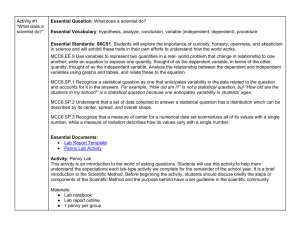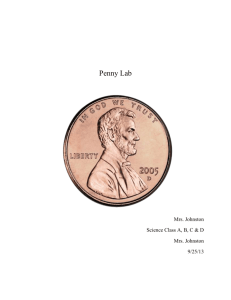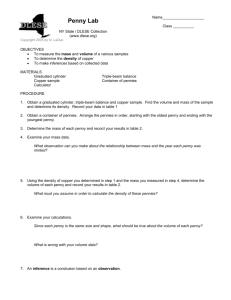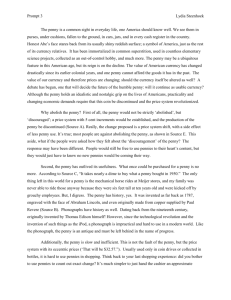The Penny Lab
advertisement
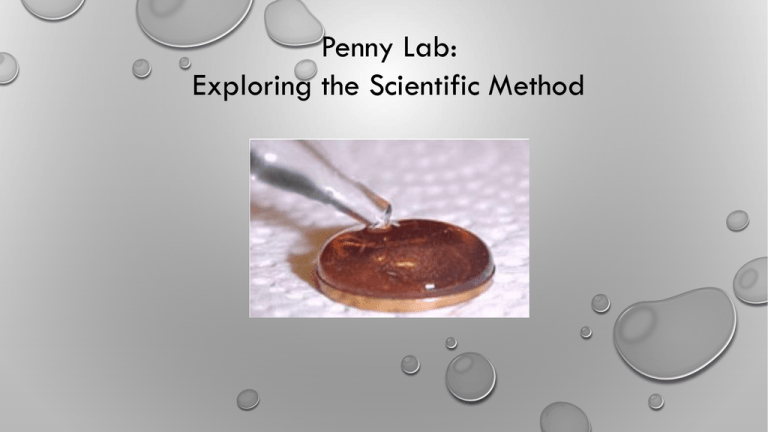
Penny Lab: Exploring the Scientific Method Step 1: Make an Observation During the summer my family plays a game known simply as “The Penny Game”. It involves throwing twenty pennies in the swimming pool and then on the count of 3 racing to see who can collect the most pennies. When not in use we leave the pennies on the windowsill of the garage. I have noticed that when it rains, drops of water collect on top of the pennies. Step 2: Ask a Question Based on my initial observation I came up with these 2 questions: 1. How many drops of water can fit on a penny? 2. How does adding soap to a penny affect how many drops can fit on it? Step 3: Form a Hypothesis Hypothesis 1: If I place drops of water on a penny, then ___ drops will fit on it. Hypothesis 2: If soap is added to a penny, then _______ drops will fit on it. What is the independent variable? What is the dependent variable? Step 4: Design an Experiment Materials: • 1 penny • Paper towel • Eye dropper/pipette • Water in small beaker Procedure: Step 1: Rinse a penny in tap water and dry completely. Step 2: Place the penny on paper towel. Step 3: Use an eye dropper to place drops of WATER on the penny (one at a time) until ANY amount of water runs over the edge of the penny. Step 4: Record the number of drops for that trial in the table. Step 5: Dip a penny in soap and repeat steps 2-4 Step 5: Record and Analyze Results Number of water droplets that can fit on a penny Group 1 No Soap Soap Group 2 Group 3 Group 4 Group 5 Group 6 Group 7 Group 8 Average Step 6: Draw Conclusions Our hypothesis was not correct. We were able to place approximately ___ drops of water on a penny. This is because water molecules are attracted to other water molecules (kind of like little magnets.) This is called cohesion. This is why the water can stack up into a large “bead” on top of the penny. The water molecules are holding onto each other and not letting each other fall off the penny! When water molecules hold onto each other like this and form a skin it is called surface tension. A water spider can sit on top of pond water because its weight isn’t more than the surface tension of the water can hold. When soap is added to a penny fewer water droplets are able to fit on the penny. This is because soap molecules have parts that repel water. This means that the soap gets in the way and keeps water molecules from grabbing onto each other.
